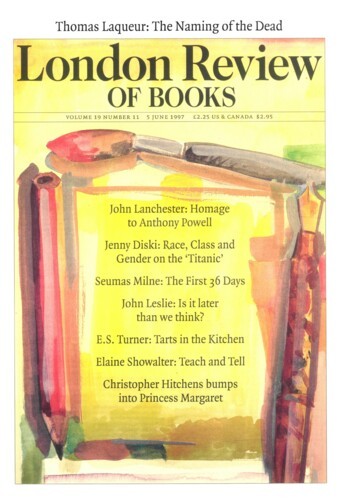Turnip into Asparagus
Wolfgang Schivelbusch, 5 June 1997
When they first met and fell in love, in Berlin in 1924, Kurt Weill was 24 years old and already a name in the postwar world of modern music in Germany. Lenya, then still Karoline Wilhelmine Charlotte Blamauer and two years his senior, was a struggling actress-dancer. They met, appropriately enough, at the house of Georg Kaiser, a playwright concerned, like Wedekind, with the bourgeois mind and the temptations of sex. Blamauer-Lenya was the daughter of a Viennese coachman and, in the German Public Health Administration’s terminology, an HWG person. An HWG person (Person mit häufig wechselndem Gesch-lechtsverkehr, ‘with frequently changing sexual partners’) was not necessarily a prostitute – as the editors of these letters suggest the young Blamauer-Lenya was – but any kind of promiscuous female. In this, Blamauer-Lenya was not very unusual – at least not in postwar Berlin, where the male population had been decimated. She was, however, exceptional in the energetic way she went about her sexual adventures – she was certainly not the ‘sweet Viennese girl’ of Schnitzler’s novellas, whom men picked up and dropped at their leisure. A real-life Lulu (as Teresa Stratas once called her), Blamauer-Lenya herself did the picking and dropping, and went on doing so even once married to Weill.’

